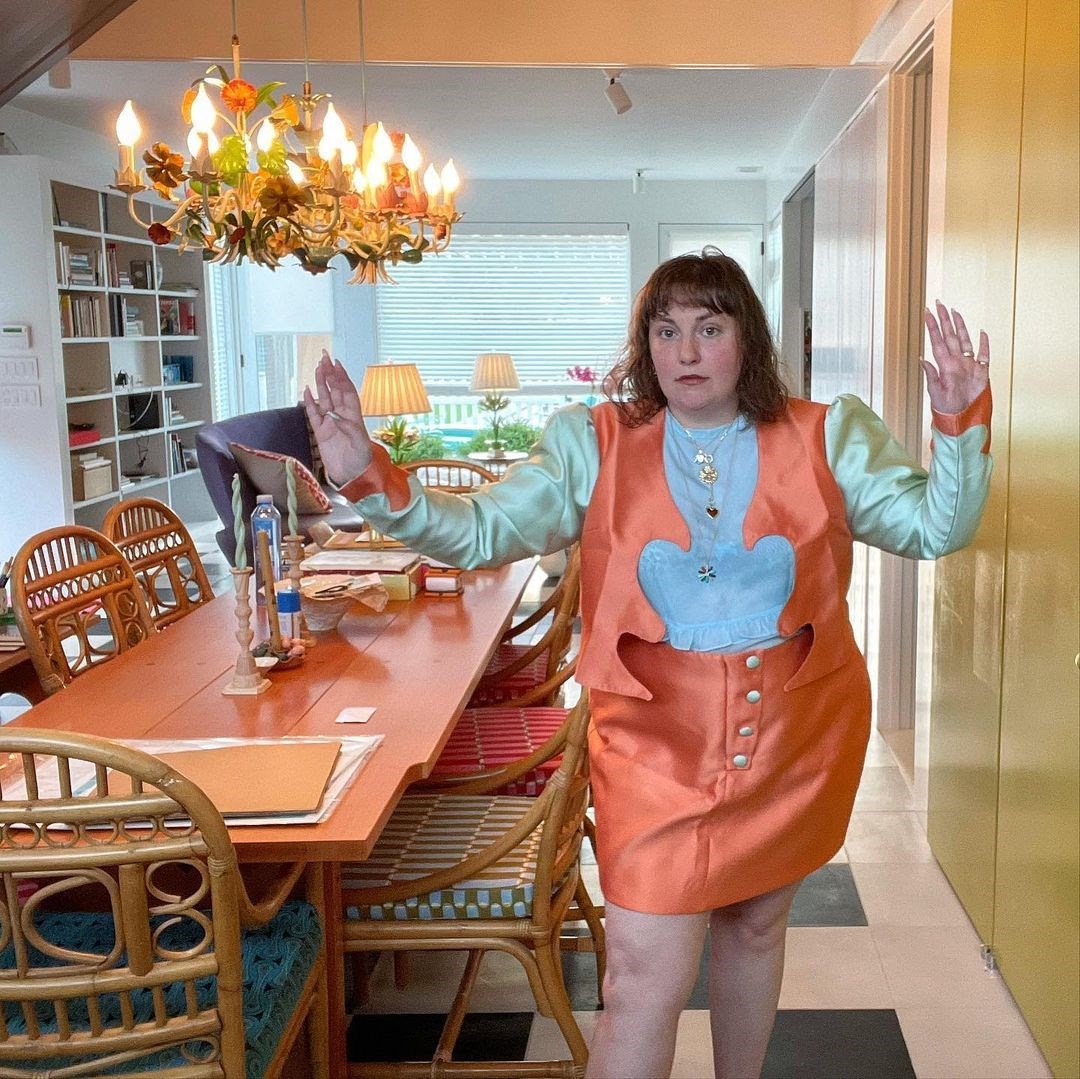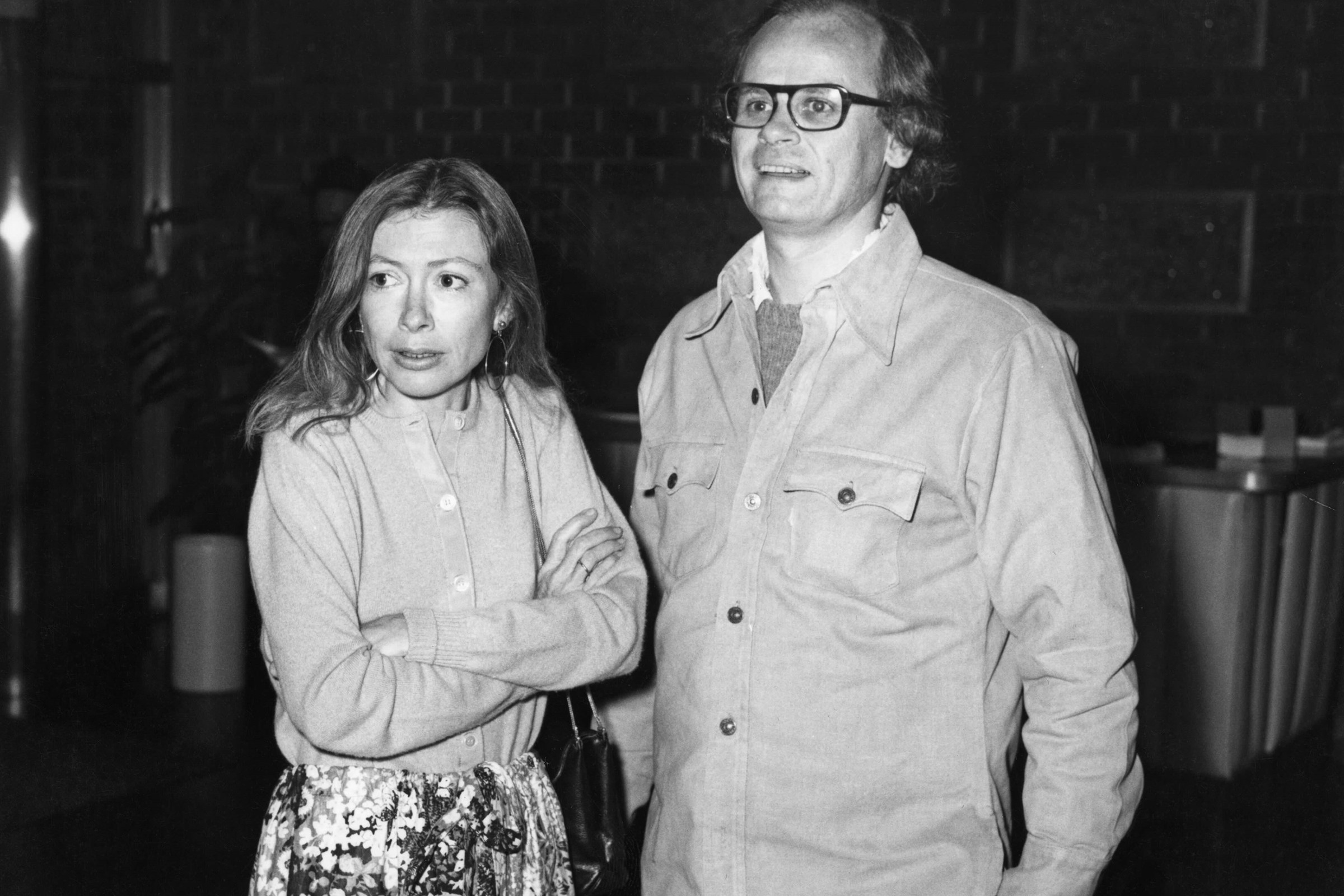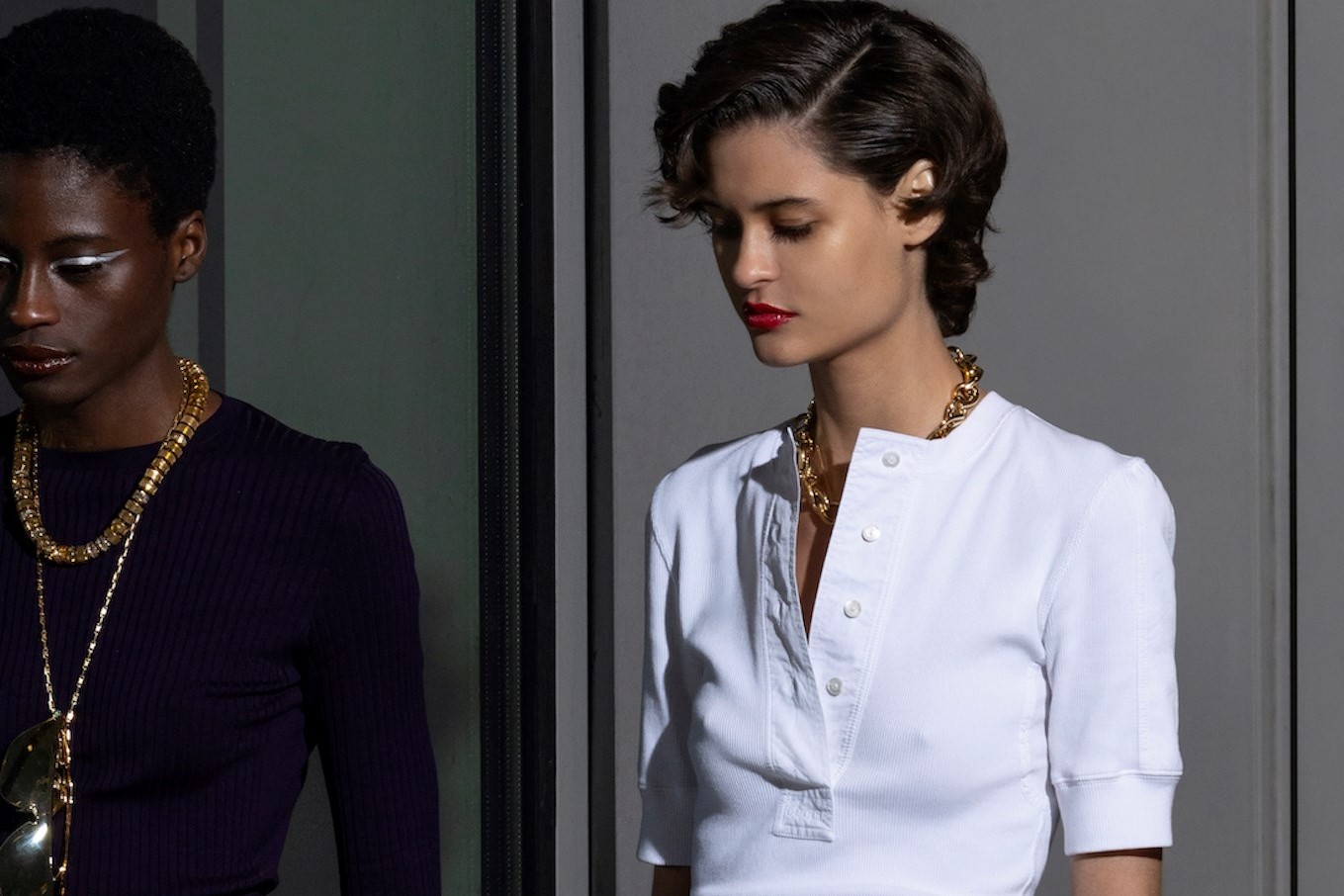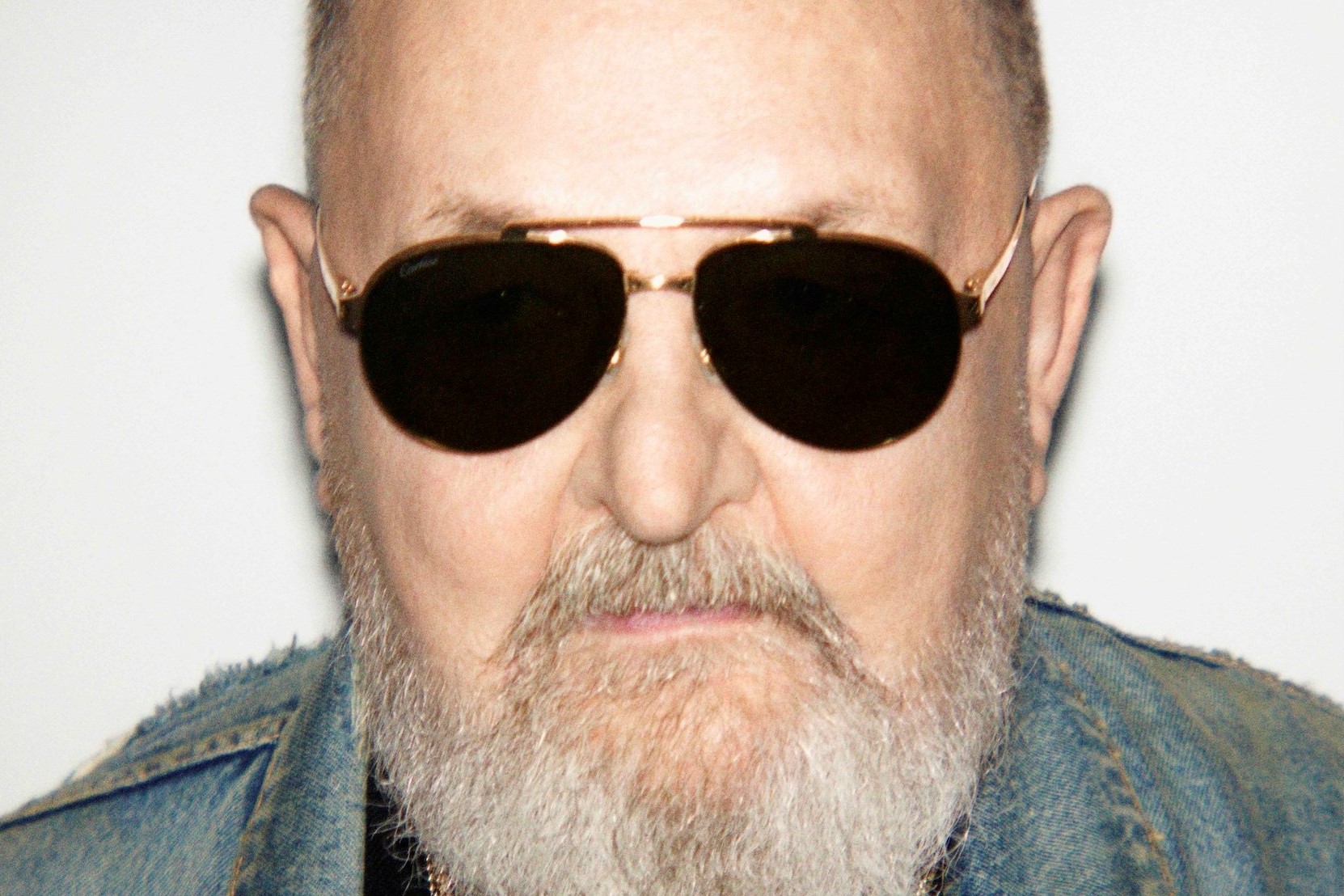Lena Dunham is standing in the back garden of her London home about to have a smoke. It’s the day Catherine Called Birdy releases around the world and the writer-director is celebrating with a “release day treat cigarette.” She asks if she’s OK to light up, speaking over Zoom from her phone. Given that Catherine Called Birdy is Dunham’s second feature film of 2022 and concludes a year-long comeback, this feels more than a touch deserved.
Dunham is now a decade removed from her directorial debut Tiny Furniture and, of course, Girls, the HBO drama that made her a household name. Time has been kind to Girls, its tack-sharp depiction of early twenties solipsism ageing impeccably, but Dunham was notably a lightning rod for criticism and controversy throughout the 2010s. She took a hiatus after Girls ended in 2017 and, amid a series of personal and health challenges, spent the time “planting seeds” for her second and third films.
The result is an excellent double bill; Catherine Called Birdy, adapted from Karen Cushman’s YA novel, a tender-hearted medieval comedy centred on a teenage girl forced into marriage by her father, and Sharp Stick, an ambiguous, ambitious drama about a young woman’s belated first sexual experience. Both films have a pleasing harmony in their themes, nicely complementing each other, and offer a necessary reminder that Lena Dunham is a consummate storyteller above all else.
As she pottered around her house, Dunham spoke to AnOther about Catherine Called Birdy, her comeback, and the legacy of Girls.
Patrick Sproull: Congratulations on both Catherine Called Birdy and Sharp Stick, it’s been quite a year for you.
Lena Dunham: Thank you. My husband said it’s like we have two children, and one didn’t do as well in school but they’re still a really cool person.
Patrick Sproull: They’re almost like non-identical twins and, if we’re running with this analogy, you gave birth to them at pretty much the same time.
Lena Dunham: Yes, I did. They’re non-identical twins and they have some things in common and sometimes they’re reacting against each other.
Patrick Sproull: I first wanted to ask you about Birdy herself. Where does she sit for you in the roster of Lena Dunham protagonists?
Lena Dunham: She’s one of the first characters that I ever even encountered because I read the book so young. She was one of the first characters I felt like I deeply related to. There were so many books I loved – I loved the lead of The Secret Garden, I loved the leads of Little Women, I loved the girl in A Little Princess, and I loved the characters of Judy Blume. But I felt like I was observing them and like I was emulating them and that they didn’t feel connected to me. When I read Catherine, Called Birdy when I was ten for the first time, I had that experience that I think is so amazing that books and movies can give you where you feel like you are experiencing this simulacrum of yourself.
“My passion for thorny or bratty or unlikeable or complicated women, women who behave badly, has probably a lot to do with having read Catherine, Called Birdy so young” – Lena Dunham
Obviously, she must have really shaped the way I think about female characters because I read that book over and over and over again. My passion for thorny or bratty or unlikeable or complicated women, women who behave badly, has probably a lot to do with having read the book so young. In a way, even though she lives in this very different time, she’s like the primordial character who I was always riffing off of and now have actually been able to bring to the screen.
Patrick Sproull: Birdy is, obviously, Karen Cushman’s original character so when you were adapting the book, how did you make Birdy your own?
Lena Dunham: I’ve always felt very connected to her and I had always felt very connected to the way Karen had conceived her. I didn’t feel like I had to do an enormous amount in order to feel like I was relating to her or like she belonged to me. But that being said, there was something about the process of taking it from book to screen where, naturally, pieces of my experience and inner life crept in. In this case it’s threefold, [Karen] writes a character, then I develop my relationship with the character, and then Bella [Ramsey] comes in and develops her relationship with the character. So, it’s like these three people riffing on this one imaginary person and I love that. I love that aspect of the process where in each iteration something new happened, and this character is sort of handed down.
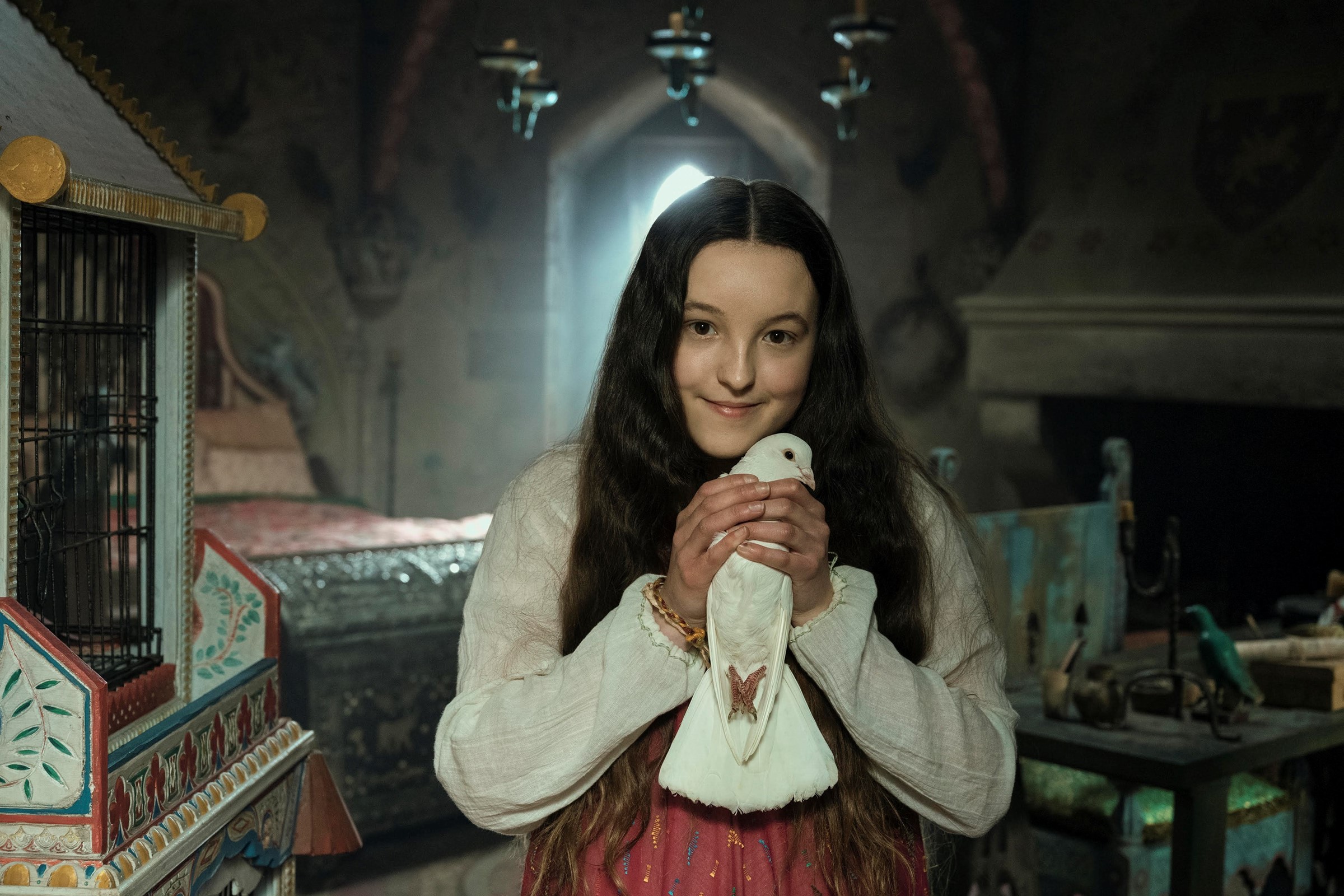
Patrick Sproull: I believe this was your first time directing a feature film where you didn’t have an acting role yourself?
Lena Dunham: It was. I had a cameo in a fantasy sequence that was ultimately cut from the movie and that wasn’t a big part. There was something really nice about just not physically being in that world at all. I really liked not being the central character in Sharp Stick and getting to exist on the periphery. I had a great time being in that movie, but I realised what a joy it was to just completely remove myself from that aspect of it. As much as you want to be able to do it all, removing yourself from that aspect just allowed you to focus on craft and on the other actors in a different way.
I’m sure that I will pop up in things I direct in the future but I’m only ever going to do it if I feel like I’m the only person who can fulfil the role. In this, there were lots of people who were better for every single role than I was. I would be the last candidate for basically all of these roles.
Patrick Sproull: I thought it was fascinating watching you put your own spin on someone else’s work. Can you see yourself adapting other works in the future?
Lena Dunham: I think there’s something about adaptation that really frees you. What I like about fiction is that you can hide your experience inside of someone else’s imagined experience. What I like about adaptation is you can hide your emotions and your message and embed it in someone else’s story, and you’re in this really interesting dialogue with what they’ve created. So, I can see myself doing more of it. I think when I was younger, I thought adaptation was ‘well, can’t you come up with your own idea?’ and now I understand. I took a poetry translation class in college and I was like, ‘Can I take this class? I don’t speak another language’ and they were like, ‘Well, you can translate it using something like Google Translate’. A lot of what translators do isn’t just a word-for-word translation. Someone who translates – I don’t know, Rilke – isn’t just doing it word-for-word, they’re trying to find the spirit of what Rilke was trying to say and then process it through their lens. Once I understood that, I thought it was a really interesting thing to know about poetry and now I understand that’s also the case when you’re adapting a story to film.
“If Girls still makes you feel seen in any way at that transitional moment then that was the only goal” – Lena Dunham
Patrick Sproull: I read an interview you did with Vanity Fair recently where you mentioned that you don’t subscribe to the idea of ’clinging to one thing that you’ve made as your identity’, which I thought was interesting because the way you’re written about and spoken about always connects you to Girls. What are your thoughts on continually being linked to Girls when you’re evolving as a creator and as a person?
Lena Dunham: Well, it’s funny because the other day we were doing an interview and someone was asking me tons of Girls-related questions. Bella was like, ‘does it ever annoy you to have to talk about Girls so much?’ and I was like, ‘I continually feel lucky that people care enough and that it continues to resonate for them enough that they want to talk about it.’ So, I’m always appreciative of that and I’m appreciative that I get to be linked to anything that I’ve made because that’s an experience that I recognise is rare. When I was 24, I thought, ‘Oh, this happens, you just put something out and people like it’ and I’ve had a career for long enough to know that that doesn’t always happen. But for me, it’s always odd, just because it was such an expression of that time in my life and so much has happened, and my experience of myself as an artist changed. I think this is something I’ve learned from having artist parents; that even though you’ve made a lot of things, you only feel as alive as the thing you’re making just then.
Patrick Sproull: I do think it is the kind of show that will just continue to resonate. I’m the same age as Hannah at the beginning of the series and it definitely hits differently.
Lena Dunham: Someone told me the other day that she loved Girls and I was like, ‘How old are you?’, and she was like ‘18!’ I was like, ‘Oh my god, so you were six when I wrote that pilot, which was not intended for six-year-olds.’ But I love the idea as I always wanted it to be something that lasted and that appealed to the experience of being that age even if the technology has changed. Those characters weren’t dealing with Instagram or TikTok in that first season, they weren’t dealing with world we’re dealing with now. But if it still makes you feel seen in any way at that transitional moment then that was the only goal.
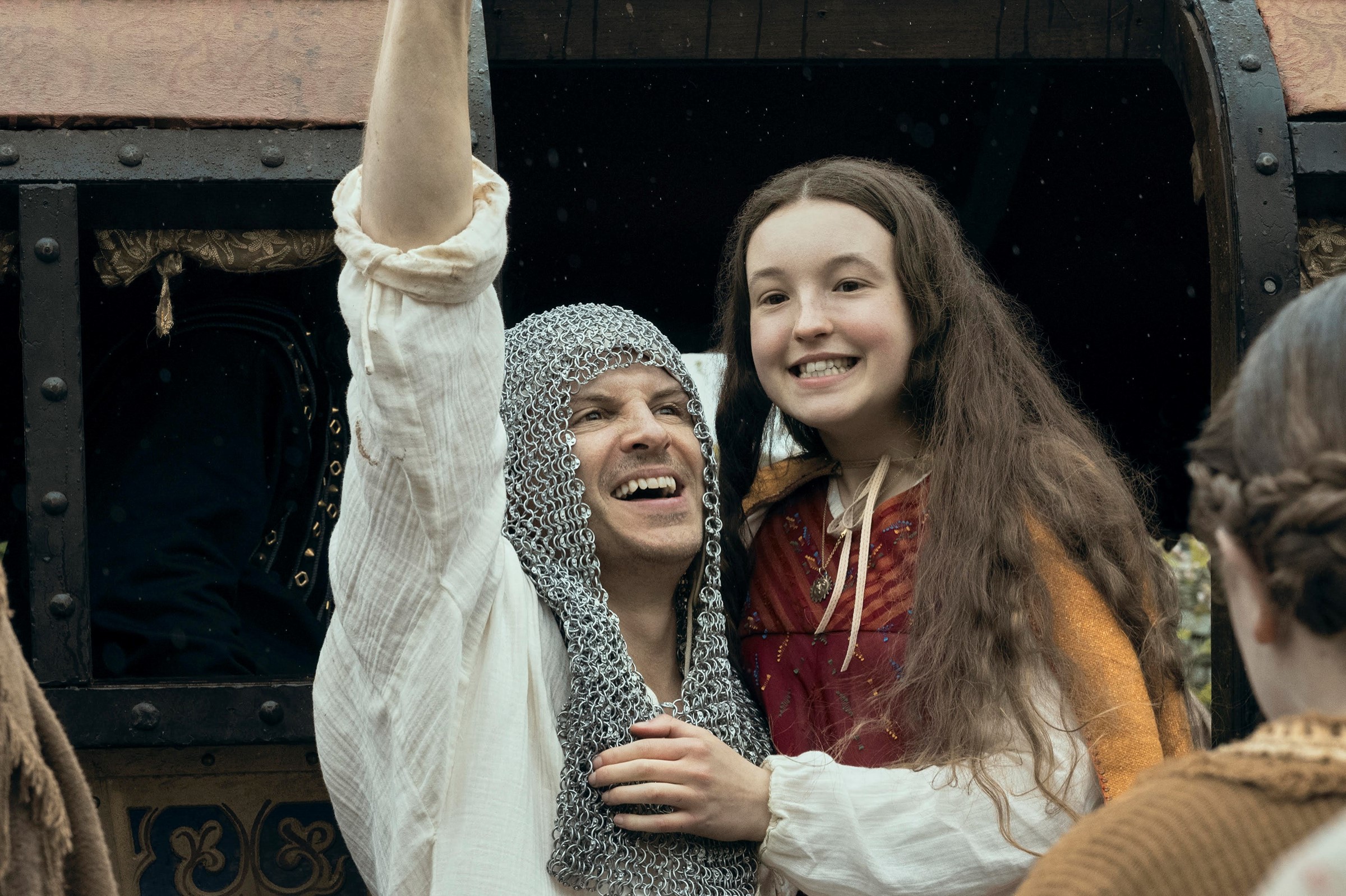
Patrick Sproull: Can you see it as the type of series that could play in a different era? Is it something you could revisit in 20 years’ time, And Just Like That style?
Lena Dunham: I hope that they are characters that could stand the test of time and people would want to see them come back but I hope that they’re people who could evolve. There are so many things that have to happen, as we saw with And Just Like That, and I thought it was really ingenious how they rolled with all the changes – changes to their bodies, changes to the cast – but there’s so many things that have to happen for a show to work. Every one of those people has to be in a place in their life where they want to do it, you have to have a story to tell, you have to be able to reflect on the time and it’s like catching lightning in a bottle.
It’s hard for me to imagine us seizing on that moment the way we did when we first did it. I would never want to do a version of it that felt like it was just for the sake of doing it. I never want to say never but at the same time, so much of it was about that moment. We were all starting our careers, it was our first job, there was just this delirious joy to getting to do it together, and so I wouldn’t want to come back with a severed version of it just to do it.
Patrick Sproull: Because of the break you took after Girls and with these films coming out so close together, do you feel you’re entering a new era of your career? Are we in the ‘Lenaissance’?
Lena Dunham: I love the term ‘Lenaissance’. My manager made me aware of someone saying ‘Lenaissance’ and I was like, ‘Well, that has a beautiful ring to it’ and I’m grateful anyone’s ever said. It’s funny because I’ve spent the last five years planting seeds, writing these scripts and figuring out what I want to do next. Then this happened to be the moment in which it all flowered quickly. I’ve always felt really engaged with my creative process, but it’s only now when people are getting to see it. It was a funny thing that the movies came out together, but I thought, ‘You know, I have this opportunity and I’m going to seize it’. My goal when I made them close together was that I hope they speak to each other. Even though they’re so different, they’re in dialogue with each other and, in a way, they’re in dialogue with Tiny Furniture. It’s sort of a trio of movies that are about different kinds of adolescences. My dad calls it my ‘women’s coming of age trilogy’ and if they can feel like they’re having a conversation with each other and have something to offer each other, that would be amazing to me.
The thing that’s been most exciting about this year in terms of sharing things publicly has just been getting to reintroduce myself as a filmmaker and focus on that aspect of craft. For such a long time my life was so dominated by Girls that there was just no space to make anything else. It’s really reminded me that putting things into the world can be very gratifying because the kinds of conversations I’ve gotten to have as a result of it have been really great and have felt different than the kinds of conversations I had around Girls. Sometimes the noise around Girls was so loud that there couldn’t be conversations about the filmmaking or the performances or the ideas because it was so much conversation about conversation. So, getting to just sit down with you or someone else and talk about the work is something that I don’t take for granted.
Catherine Called Birdy is in UK cinemas now and streams on Amazon Prime Video from October 7.
